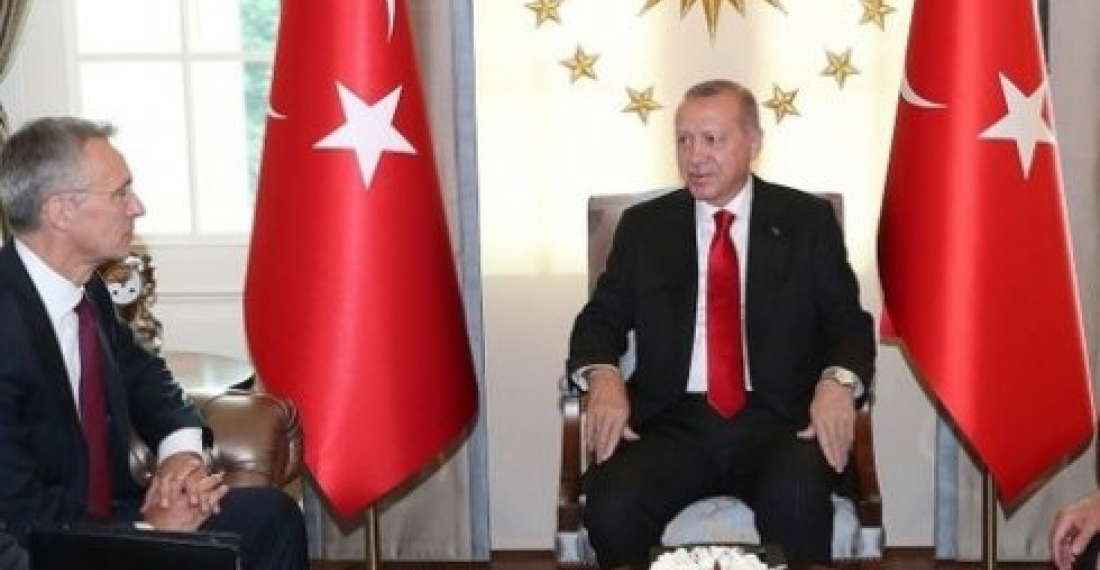A meeting of NATO's North Atlantic Council, together with Mediterranean partners, was held in Ankara on Monday.
NATO's Secretary General, Jens Stoltenberg, arrived in the Turkish capital on Monday morning, and soon after met with Turkish president Recip Tayip Erdogan.
In an interview with the semi official Anadolu news agency prior to his arrival in Turkey, Stoltenberg said Turkey is the NATO ally most exposed to violence and turmoil stemming from the Middle East and suffered a series of terrorist attacks. The Secretary General said that the 29-nation alliance is committed to the defence of Turkey. The NATO allies stand with Turkey as it faces serious security challenges by protecting Turkey with air and missile defence systems and patrolling Turkish air space by AWACS surveillance planes, Stoltenberg said. "At last month's meeting of foreign ministers in Washington, we also agreed a package of possible actions to enhance the security of the Black Sea region. All this shows NATO's commitment to the defence of Turkey," he stated.
Turkey is actively contributing to the joint defense of the alliance and NATO appreciates what Turkey is doing to this end, the alliance leader said. "Turkey joined the Alliance in 1952, and it continues to be a highly valued member of our family of nations. As secretary-general, I greatly appreciate all that Turkey does for our Alliance," he underlined.
"Turkey also plays an important role in NATO's new training mission in Iraq. It is strengthening Iraq's security forces to help ensure that ISIS [ISIL] can never return," Stoltenberg stressed, citing Turkey's contributions to missions in Afghanistan, Western Balkans and Kosovo as examples.
source: commonspace.eu with agencies
photo: NATO Secretary General Jens Stotltenberg meeting with the president of Turkey, Recip Tayip Erdogan in Ankara on 6 May 2019.






